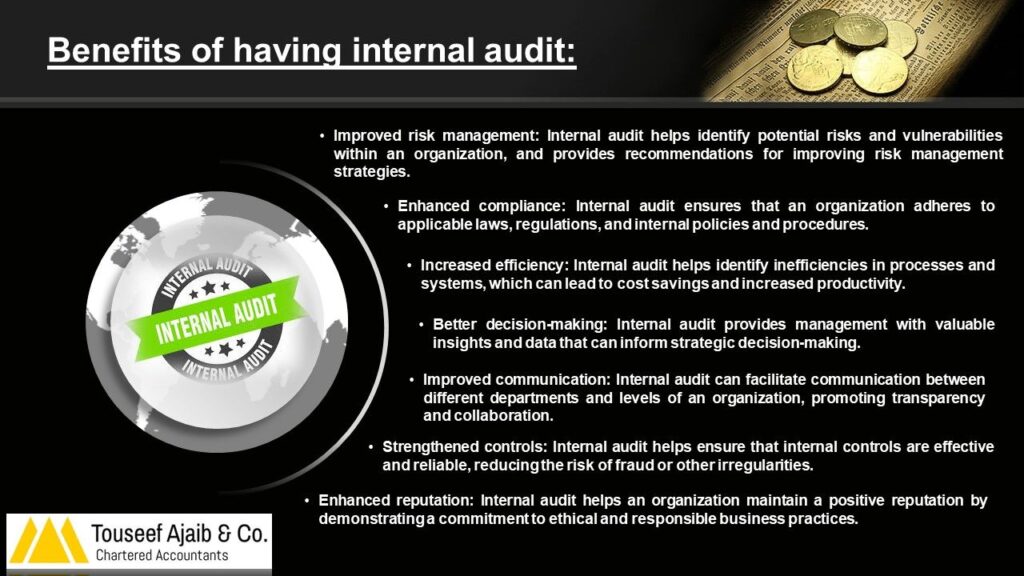
In an era of evolving business complexities, organizations must ensure efficiency, transparency, and compliance with regulatory frameworks. One of the most effective ways to achieve this is through internal audit. Unlike external audits, which focus on financial statements for regulatory purposes, internal audits are designed to evaluate and improve internal controls, risk management, and operational effectiveness.
What is Internal Audit?
Internal audit is an independent and objective function within an organization that assesses internal controls, governance processes, and risk management. It provides management with insights and recommendations to enhance efficiency, prevent fraud, and ensure compliance with policies and regulations.
The Need for Internal Audit
1. Enhancing Internal Controls and Governance
Internal audits play a critical role in ensuring that internal controls are well-designed and effective. They help organizations identify gaps in governance structures, ensuring that policies and procedures are followed to maintain accountability and operational integrity.
2. Identifying and Managing Risks
Every business faces financial, operational, and strategic risks. Internal audits help in proactively identifying these risks and recommending mitigation strategies. This risk-based approach ensures businesses are prepared for potential threats before they escalate.
3. Fraud Prevention and Detection
Fraud can severely impact an organization’s financial health and reputation. Internal audits help detect irregularities, fraudulent activities, or policy violations early, reducing the chances of financial misconduct and safeguarding company assets.
4. Ensuring Regulatory Compliance
Regulatory requirements are continuously evolving, and non-compliance can result in significant legal and financial consequences. Internal audits help businesses stay compliant with industry regulations, tax laws, and corporate governance standards.
5. Operational Efficiency and Cost Savings
By assessing business processes and workflows, internal audits identify inefficiencies and areas for cost reduction. Streamlining operations based on audit recommendations can lead to improved productivity and financial savings.
6. Supporting Strategic Decision-Making
Management relies on accurate and timely information for decision-making. Internal audits provide valuable insights into financial and operational performance, helping leadership make informed strategic choices that drive growth and sustainability.
Key Benefits of Internal Audit
- Improved Governance: Strengthens corporate governance by ensuring transparency and accountability.
- Risk Mitigation: Helps in identifying and managing potential risks before they escalate.
- Fraud Reduction: Detects irregularities and prevents financial losses due to fraud.
- Regulatory Compliance: Ensures adherence to legal and regulatory requirements, avoiding penalties.
- Process Optimization: Identifies inefficiencies and suggests improvements for better productivity.
- Business Growth Support: Provides management with insights to make strategic business decisions.
Conclusion
Internal audits are a vital tool for organizations striving for operational excellence, regulatory compliance, and financial integrity. By identifying risks, improving processes, and ensuring strong governance, internal audits not only protect a business but also enhance its growth potential. A well-structured internal audit function is not just a necessity—it is a strategic advantage that drives long-term success.
